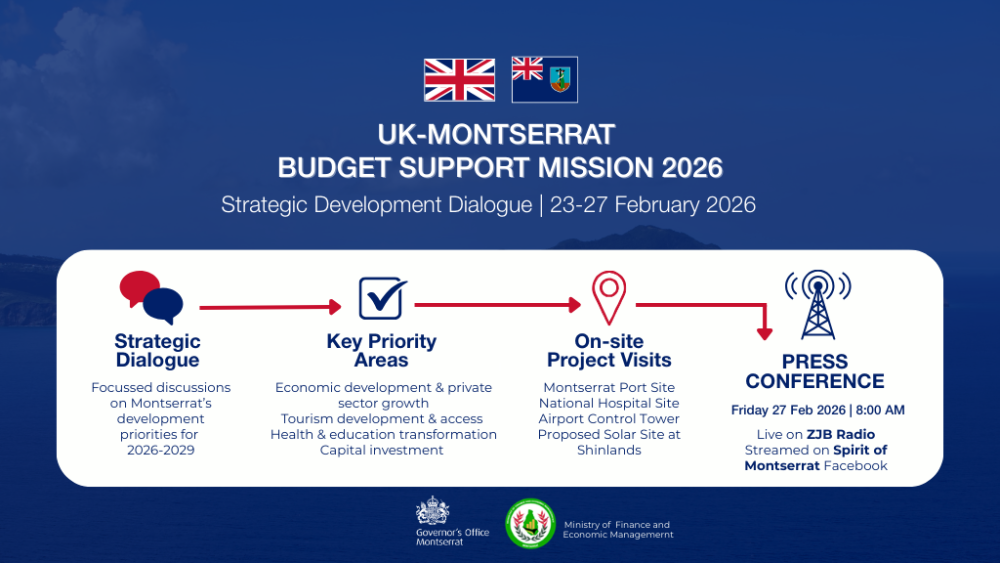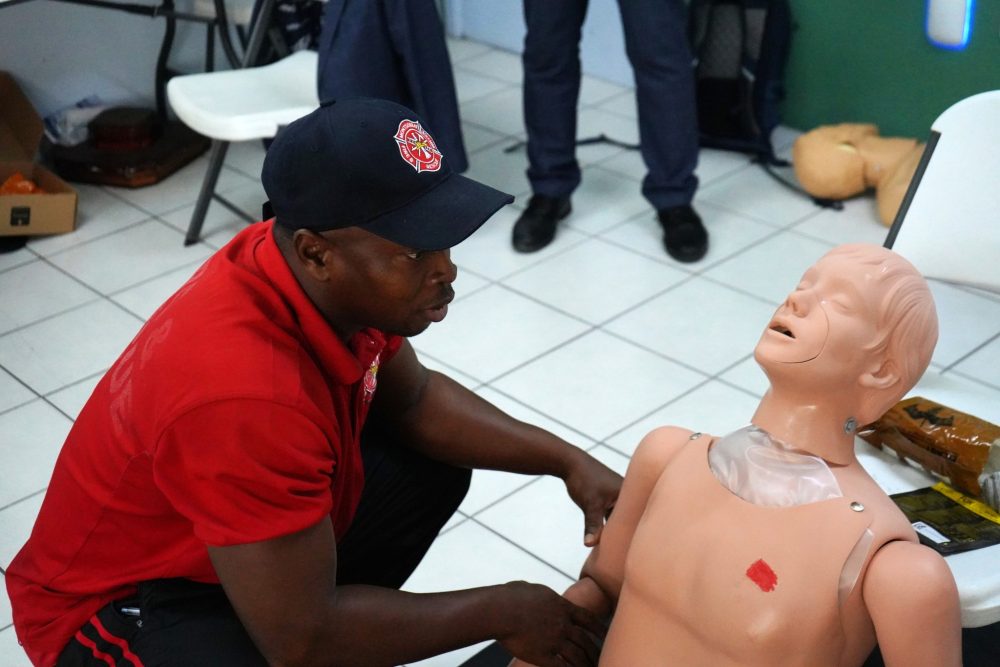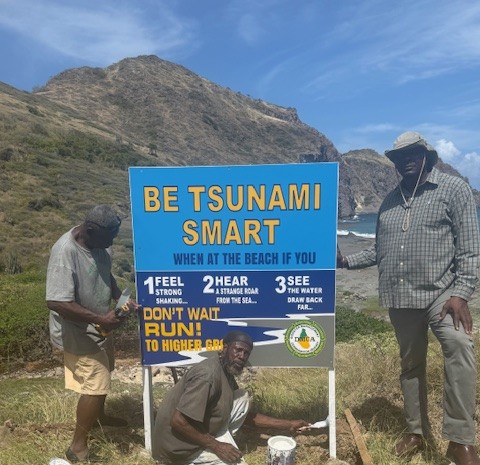Hon. Minister of Communications & Works Paul Lewis represented Montserrat at the recently concluded summit on energy, hosted by US Vice President Joe Biden.
CARICOM and Central American leaders and their representatives joined US Vice President Joe Biden for the U.S.-Caribbean-Central American Energy Summit at the U.S. Department of State in Washington, 3-4 May 2016.
The Summit saw the launch of the results of the energy task force for the Caribbean and Central America announced by President Obama during his meeting with CARICOM Heads in Jamaica in April last year.
To help achieve a more secure, affordable, and clean energy future, President Barack Obama announced the Task Force for Caribbean and Central American Energy Security (U.S.-CCA Task Force) when he met with Caribbean and Central American leaders in Jamaica and Panama, respectively, in April 2015.
In consultation with both regions, the U.S.-CCA Task Force was created as a means to diminish the vulnerability of small electricity markets in Central America and the Caribbean to fluctuations in global energy markets, and contribute to an aggregate reduction in tariffs for consumers, elevating the competitiveness and economic prosperity in both regions. The U.S.-CCA Task Force also provided a forum for the joint and collaborative identification of challenges and opportunities for energy diversification, clean energy investment, regional energy cooperation and integration.
Within the Caribbean, the Task Force (U.S.-C Task Force) identified steps to continue progress under the Caribbean Energy Security Initiative (CESI), focusing on actions that support and improve the governance and investment climate for clean energy, including: (i) enhancing regional coordination on energy matters through the Caribbean Sustainable Energy Roadmap and Strategy (CSERMS) framework and the Caribbean Center for Renewable Energy and Energy Efficiency (CCREEE); (ii) acceleration of regional markets for energy efficiency through innovative financing approaches; and (iii) increasing clean energy investment.
These actions would be supported through appropriate mechanisms including, but not limited to, the Overseas Private Investment Corporation (OPIC) Caribbean and Central America program, the Clean Energy Financing Facility (CEFF-CCA), and others. Within the Caribbean context, emphasis was placed on the need for support for the development of comprehensive, planning-based and research driven approaches to the energy transition, including the implementation of pilot and demonstration projects.
Many countries, especially among the SIDS, also face limited access to capital markets; small energy markets; and unique regulatory and policy frameworks, which can create barriers to the investments necessary for transforming their energy systems. A number of Task Force participants noted that these challenges can lead to a “vicious cycle” in which there is a continuation of high energy costs that inhibits growth.
The CARICOM Secretariat estimates that the Caribbean will require US$20 billion in energy investment to achieve the 2027 C-SERMS targets.
Link to Task Force Report
Discover more from Discover Montserrat
Subscribe to get the latest posts sent to your email.



